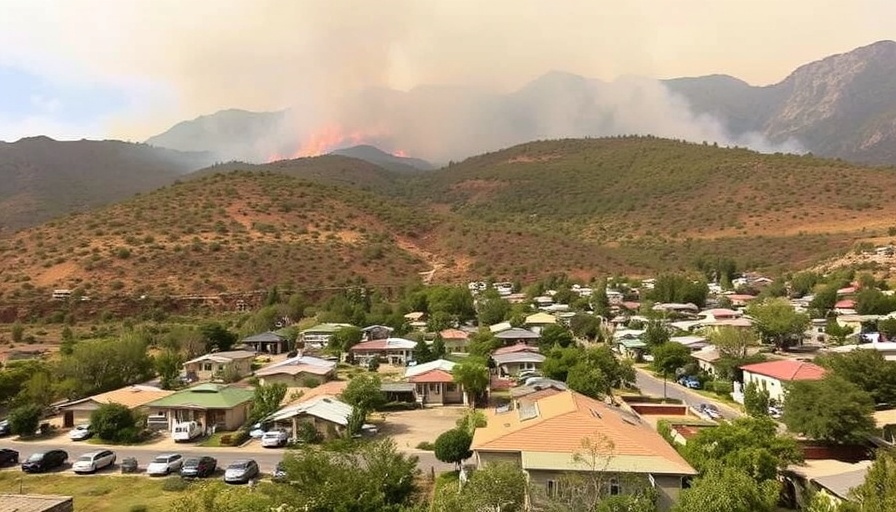
The Escalating Threat of Wildfires: Contextualizing the Silvermine Incident
On the morning of April 27, 2023, a massive wildfire erupted in the Silvermine area, prompting the evacuation of a retirement village. This catastrophic event quickly escalated into a crisis as flames relentlessly marched down mountain slopes, necessitating urgent responses from local firefighting units. Though wildfires are not foreign to South Africa, this incident underscores the growing frequency and intensity of such disasters, often linked to climate change and inadequate firefighting resources. Just a week earlier, the region had seen a sharp rise in temperatures, making conditions ripe for such an outbreak.
The Broader Implications: Climate Change and Governance
As we navigate through frequent climate-related emergencies, the intersection of environmental challenges with governance issues becomes glaringly apparent. The Silvermine fire acts as a reminder of the urgent need for robust government policies to effectively manage natural disasters. Experts warn that without comprehensive reforms addressing fire management and environmental resilience, the country will continue to be vulnerable. This incident raises critical questions: How prepared is our government to confront the recurring threats posed by natural disasters? Are our public services equipped to protect vulnerable communities?
Public Sentiment: The Human Cost of Natural Disasters
The emotional toll on residents evacuated from the retirement village cannot be overstated. Many of these individuals have built their lives in the community, and facing such abrupt upheaval brings fear and anxiety. This situation reflects broader societal issues, including the government's role in maintaining a reliable emergency response system. The public's trust in governmental efficiency is contingent upon perception and experience during these critical moments.
Political Dimensions: Reflection on Emergency Preparedness
The Silvermine fire incident also resonates with ongoing political discourse about effective governance within South Africa. As national elections approach, political factions—including the ANC, DA, and EFF—must address constituents' concerns regarding response frameworks to disasters. Voter sentiment is increasingly shaped by how politicians handle crises, and the public's perception of their ability to manage emergencies will undoubtedly play into voting decisions. The call for accountability in disaster management has never been louder.
Moving Forward: Proactive Strategies for Resilience
Addressing the ramifications of recent events, it's essential to consider strategies to enhance the nation’s resilience against future disasters. This includes investment in early-warning systems, improved land management practices, and community education on fire safety. Moreover, collaboration with environmental organizations can foster innovative approaches to manage natural resources, thereby mitigating fire risks. Engaging communities in dialogues about environmental stewardship and resource management could fortify South Africa against climate uncertainties.
The significance of local action cannot be underestimated. As grassroots organizations rally to support affected families, the need for an integrated approach to safety—encompassing municipal, provincial, and national efforts—becomes clear. Through collective effort, South Africans have the potential to navigate the dire challenges posed by climate change effectively. We must not only respond to crises as they happen but build lasting infrastructures to prevent and better manage future disasters.
In light of the Silvermine fire, it’s crucial that South Africans come together to advocate for comprehensive policies that prioritize both disaster responsiveness and environmental health. Through conscious collective action, we can address not only the current crises but also the foundation upon which future resiliency lies.
 Add Row
Add Row  Add
Add 




Write A Comment